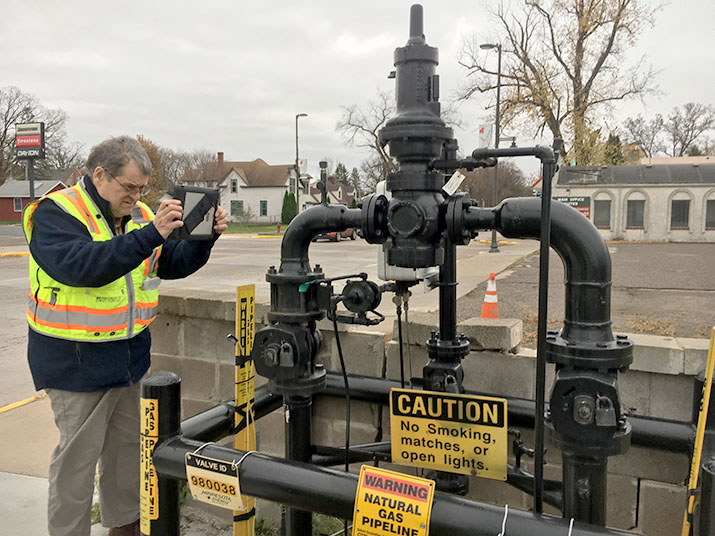How a pipeline inspector becomes a pipeline inspector
Nov. 9, 2017
 |
| Photo: File under “Things you don’t have to think about”: You can safely use gas and water in your home (among other things) because of Minnesota’s carefully chosen pipeline safety inspectors. |
Pipeline inspections are like city streets: You don’t really think about them until there’s a bump in the road. Very few Minnesotans know there’s an Office of Pipeline Safety, and that’s OK: it means they and the pipeline industry are following regulations and putting safety first, and successfully avoiding occurrences like explosions and gas leaks.
In case you’re wondering, the Minnesota Office of Pipeline Safety (MNOPS) acts as a regulatory agency – their job is to ensure that Minnesota’s 86 pipeline operators, 60,000 miles of pipeline, and nearly 1.5 million gas meters are in compliance with applicable pipeline safety standards.
MNOPS inspects natural gas, propane and hazardous liquid pipelines, and investigates leaks and accidents. So you can see why inspections are a vital part of safety. MNOPS inspectors check to ensure that companies are in compliance with applicable regulations.
But not just anyone can be a pipeline inspector. They have to be detail-oriented, organized and not afraid to ask questions. Some have likened their work to huge and complex puzzles. They get a few handfuls of information, and they have to make sure all that information threads together properly. So good problem-solving skills are a must. Pipeline inspectors also need to make sure companies have processes required by regulations for everything from welding pipes together to the placement of pipeline signage. But simply having a process isn’t enough. MNOPS inspectors ensure companies safely follow those processes.
Inspectors look at pipeline company records and training, visit pipeline facilities, observe construction practices and emergency response, and observe company personnel performing various operational maintenance tasks. Many inspectors are licensed professional engineers, and others are individuals with technical backgrounds or pipeline industry expertise.
When hired, an inspector has a probationary period during which they are required to shadow senior inspectors through the various types of inspections that MNOPS performs. In addition, MNOPS inspectors are required to attend numerous weeks of pipeline safety training required by the Pipeline and Hazardous Materials Safety Administration. About 10 weeks of core training are required for the inspectors, and additional courses are required to complete more specialized inspections.
So next time you turn on your gas stove or use the hot water in your house, and you don’t think about the pipeline inspector who worked to make sure it’s safe for you to do, don’t worry. That just means they’re doing their job – and doing it well.

